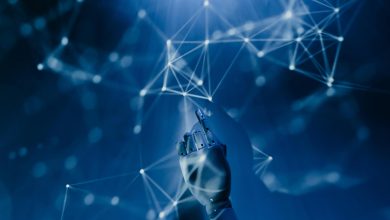
Picture this: You’re driving home after a long day, and suddenly a melody pops into your head. It’s beautiful, unique, and feels like it could touch the hearts of millions. But by the time you reach home, reality sets in turning that fleeting inspiration into an entirely produced song has traditionally required technical skills, expensive tools, and hours of work.
Today, artificial intelligence is changing that reality. AI-powered platforms such as Tomusic and other emerging tools are lowering the barriers to entry for AI music creation, making it possible for anyone, from hobbyists to professionals, to bring their ideas to life in minutes.
Breaking Down the Old Barriers
For decades, music production was often limited by four major obstacles:
-
Technical Complexity: Learning DAWs like Logic Pro or Pro Tools can take months.
-
Financial Investment: Studio-grade software and hardware cost thousands.
-
Time Commitment: Building songs from scratch demands countless hours.
-
Industry Gatekeeping: Reaching an audience often required connections with labels.
AI-powered tools are beginning to address each of these challenges, democratizing music in the same way that smartphone cameras transformed photography.
What Makes AI in Music a Game-Changer
The new generation of AI music tools, Tomusic included, brings three significant advantages:
-
Instant Accessibility
Instead of learning technical interfaces, users can describe the type of music they want, whether that’s “a calming meditation track” or “an upbeat electronic workout song.” The AI handles the rest. -
Professional-Level Output
These tools are designed to deliver songs with full arrangements, high-quality audio, and even structured verses and choruses. While they don’t replace professional studios, they make high-quality prototyping and content creation much easier. -
Creative Flexibility
Users can guide the process by choosing moods, genres, or even adding lyrics. The AI then adapts, allowing for endless variations at minimal cost.
A Quick Comparison
| Feature | AI Music Tools (e.g., Tomusic) | Traditional DAWs | Hiring Professionals |
|---|---|---|---|
| Learning Curve | Immediate | 6+ months | N/A |
| Creation Speed | Minutes | Hours to days | Days to weeks |
| Cost per Song | Often free or low-cost | $200+ for software/time | $500–$5000 |
| Quality | Consistent, improving | Skill-dependent | Excellent but costly |
| Creative Freedom | Guided by text input | Requires expertise | Full but expensive |
Real-World Impact
Early adopters are already finding value across industries:
-
Content Creators are generating unique background music to stand out in crowded platforms.
-
Educators are turning history lessons into songs, making learning more engaging.
-
Small Businesses are producing jingles for marketing campaigns without the expense of hiring composers.
-
Independent Artists are using AI to prototype song ideas quickly before moving into full production.
The Bigger Picture: Opportunities and Questions
AI is not just making music easier to create it’s also sparking broader conversations.
-
Copyright and Ownership: Who owns an AI-generated song?
-
Creativity vs. Automation: Does AI enhance human imagination, or replace it?
-
Industry Impact: Will AI Disrupt Traditional Music Production, or Expand Access?
Like other creative AI tools, this technology opens up exciting possibilities while raising important ethical and legal questions.
Getting Started with AI Music
For those curious to experiment, the process is simple:
-
Begin with a description, keep it concise and straightforward.
-
Select a mode for quick generation to achieve speed, or opt for more detailed control for customization.
-
Refine the result by adjusting the tempo, lyrics, or instrumentation as needed.
-
Share or use the track; most tools allow export for personal or professional projects.
Conclusion: A New Era of Creativity
The gap between musical inspiration and production has never been smaller. Whether you’re a teacher, a small business owner, a YouTuber, or an aspiring songwriter, AI-powered platforms like Tomusic are opening up new possibilities for expressing ideas through music.
While challenges around originality, copyright, and artistry remain, one thing is clear: music creation is no longer reserved for those with technical training or expensive equipment. With AI, the next great song could come from anyone, anywhere.

